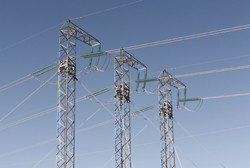Mitigating signal loss in smart grids
Smart-grid applications require reliable and efficient communication capabilities. Distributed sensor networks enable the cost-effective management of energy but harsh and extreme environments pose great challenges in wireless communications reliability. To address this need, the EU-funded project SA-WSN(opens in new window) developed a spectrum-aware and cross-layer communication framework to realise efficient sensor networking. Functionalities of traditional communication layers are melted in a customised cross-layer communication module that helps decrease overheads and improve performance. Moreover, cognitive spectrum access techniques enable more efficient spectrum utilisation by adapting to the communication resource availability. Scientists developed accurate analytical wireless channel models in different power system environments. In-depth analyses of wireless link reliability revealed spatio-temporally varying spectrum characteristics because of electromagnetic interference, equipment noise or dynamic topology changes. The project team also found that link quality estimators that take into account link asymmetry exhibit the best performance in harsh smart-grid environments. The received signal strength was found to greatly fade over distance. Depending on the environmental characteristics, it may exhibit random behaviour for a given distance. Furthermore, analyses revealed that packet reception rate values in smart grid environments are volatile and fluctuate between 0 and 100 %. The decrease rate in packet reception was found to increase proportionally with transitional region size. Project results were published in several peer-reviewed journals. Potential applications of the proposed cognitive sensor network platform include automatic metering, remote power system monitoring and control, electricity fraud detection and equipment fault diagnostics. Importantly, these applications should lead to new products and processes that will improve efficiency and sustainable energy resource use. This should provide Europe with a competitive edge in the global market place.







